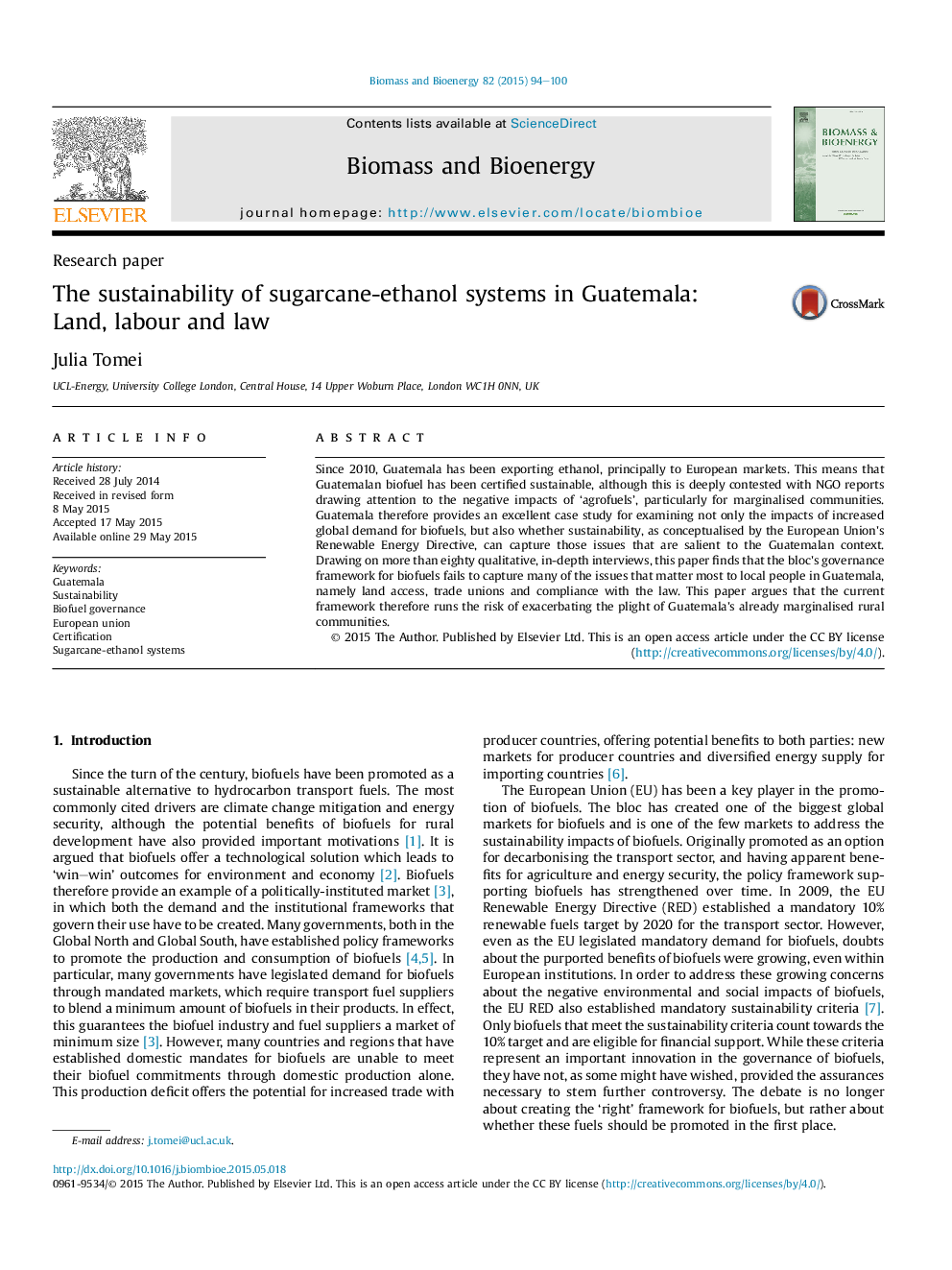| Article ID | Journal | Published Year | Pages | File Type |
|---|---|---|---|---|
| 7063680 | Biomass and Bioenergy | 2015 | 7 Pages |
Abstract
Since 2010, Guatemala has been exporting ethanol, principally to European markets. This means that Guatemalan biofuel has been certified sustainable, although this is deeply contested with NGO reports drawing attention to the negative impacts of 'agrofuels', particularly for marginalised communities. Guatemala therefore provides an excellent case study for examining not only the impacts of increased global demand for biofuels, but also whether sustainability, as conceptualised by the European Union's Renewable Energy Directive, can capture those issues that are salient to the Guatemalan context. Drawing on more than eighty qualitative, in-depth interviews, this paper finds that the bloc's governance framework for biofuels fails to capture many of the issues that matter most to local people in Guatemala, namely land access, trade unions and compliance with the law. This paper argues that the current framework therefore runs the risk of exacerbating the plight of Guatemala's already marginalised rural communities.
Related Topics
Physical Sciences and Engineering
Chemical Engineering
Process Chemistry and Technology
Authors
Julia Tomei,
